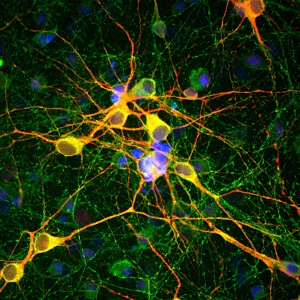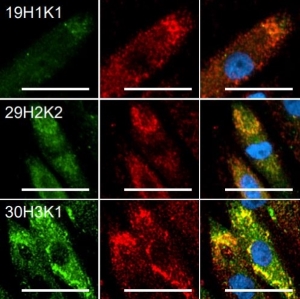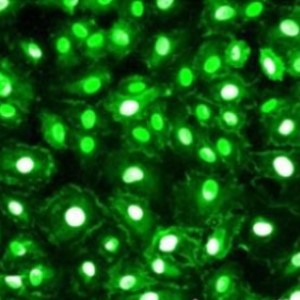Product Details
Product Sizes
| Size | List Price | Price | Cart |
|---|---|---|---|
| 100 ul | $505.00 | Add to Cart |
Ubiquitin is a highly conserved protein of about 8.5 kDa molecular weight, which has a normal role in the targeting of proteins for proteolytic degradation. To perform this function, the protein to be degraded is first covalently attached to the C-terminus of ubiquitin, and the ubiquitinated complex is then recognized by a complex of degradative enzymes. Interestingly, ubiquitin also becomes covalently bonded to many types of pathological inclusions, which appear to be resistant to normal degradation. Therefore, ubiquitin antibodies are very useful for studies of these inclusions. For example, the neurofibrillary tangles and paired helical filaments diagnostic of Alzheimer's disease, Lewy bodies seen in Parkinson's disease, and Pick bodies found in Pick's disease are all heavily ubiquitinated and can be readily visualized with ubiquitin antibodies. |
Images
Confocal images of hippocampal CA1 sections from rats, (A) mock-treated or (B) subjected to 15 minutes ischemia followed by 24 hours of reperfusion, using ubiquitin mouse antibody (green) and propidium iodide (red). Data courtesy of Cell Signaling Technology, Inc.






